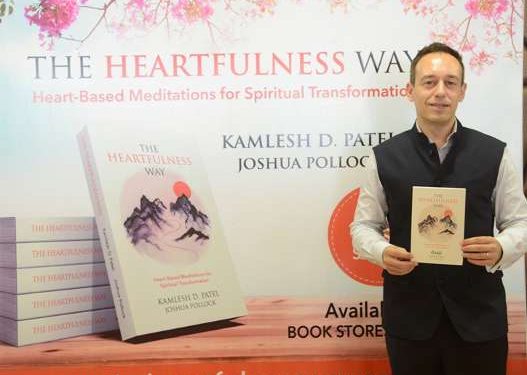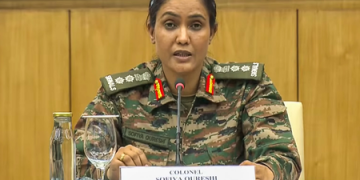Musician-cum-meditation trainer-cum-author of a spiritual book, JOSHUA POLLOCK’S life has turned full circle and he is now busy promoting a book he has co-authored with Kamlesh D Patel titled ‘The Heartfulness Way’. A western classical violinist from the United States who was the first teacher to have been inducted in AR Rahman’s music school to teach western classical music, Joshua has worked with the musical maestro and Oscar winning composer in films like ‘Delhi-6’, ‘Yuvraaj’, ‘Ghajini’, and ‘Raavan’. The violinist has toured more than 20 cities in two months and was in Bhubaneswar recently as part of his book promotion tour. Orissa POSTchatted with him about his new book, musical collaboration with Rahman and life-changing experiences, which the violinist describes as meditation methodology. Excerpts from an interview:
ARINDAM GANGULY, OP
Q Tell us about your transition from a violinist to an author?
A This is completely new to me. I have visited more than 20 cities in the last two months and will visit more than 10 in the next three weeks. I am still a musician at heart but at present busy with the tour for this book. The idea of writing this book about meditation came two years ago when Kamlesh D Patel, known to many as Daaji – the fourth and current spiritual guide of the decades-old heartfulness tradition which encourages an enquiry-based approach to meditation – asked me to write a book about meditation. At first I was sceptical about writing the book although I am associated with heartfulness meditation and practising it for the last 15 years. The book is a series of candid conversations between Daaji and me in which we explore the practice and principles of heartfulness meditation. It is about a student in conversation with his teacher. During the conversation I ask Daaji many questions as a beginner in meditation which will help beginners to understand when they read the book. The book de-mystifies the concept of meditation with clarifications and answers to queries readers have raised on the subject.
Q How different is the book from other spiritual books on meditation?
A In this book we show that for peaceful meditation you don’t have to retire from daily life and live a yogi or sanyasi’s life. The practice of heartfullness is based on the experience you have. Meditation is not reserved for the yogis or the elite class; it can be practised with ease by common people faced with mundane problems of livelihood, worries, stress and misery. We believe that you cannot remain seated in meditation all day; you can remain in a meditative state throughout your activities. Your life becomes mediation. it is meditation with open eyes. You are not seated in meditation, yet you are meditating.
Q Do you think music has a spiritual aspect? Has heartfulness meditation helped you compose better music?
A Heartfulness meditation has helped me discover new realms of music. Music is a potent form of meditation, and it comes from one’s heart. However, it is important to sync it with mind. There are things in life that give enjoyment and happiness and music is one of them, but it can’t give satisfy one’s spiritual craving for long. It can temporarily help you in gaining happiness or peace. Meditation is not about deriving something out of it. You don’t meet a loved one and start thinking what they can do for you. Similarly, you cannot meditate just to get something out of it. Everybody has their own reason for meditating.
Q You have collaborated with AR Rahman in many hit movies. How was your experience of working with him?
A His style of working is very laidback; he would record at night so one would get a call around midnight to come to the studio. He gives space to other musicians to show their craft and then mix it. We have worked together in many movies. I learned about Rahman’s stardom only after I came to India. His music is truly universal. I personally love ‘Ghajini’s’ music, although I had the most number of solos in ‘Delhi-6’.
Q Tell us about your future plans.
A Although my focus has shifted to the book over the last two years, music remains an integral part of my life. You can’t take it away, except that now I am travelling with my book to different parts of India after which I will visit the USA and Europe. I have been playing violin since the age of four. I recently did a small fusion concert with Carnatic musicians Lalitha and Nandini






































